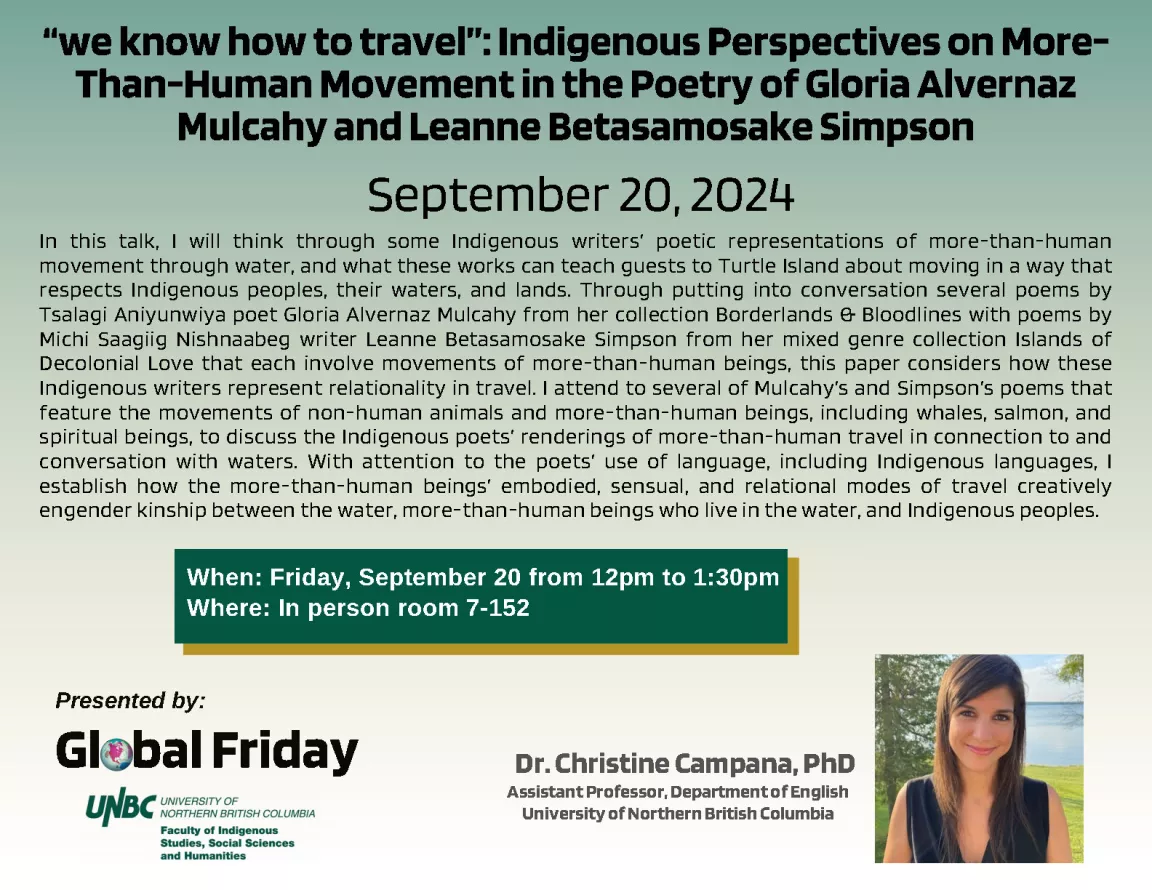“we know how to travel”: Indigenous Perspectives on More-Than-Human Movement in the Poetry of Gloria Alvernaz Mulcahy and Leanne Betasamosake Simpson

Dr. Christine Campana, Assistant Professor, Department of English, University of Northern British Columbia
Abstract:
In this talk, I will think through some Indigenous writers’ poetic representations of more-than-human movement through water, and what these works can teach guests to Turtle Island about moving in a way that respects Indigenous peoples, their waters, and lands. Through putting into conversation several poems by Tsalagi Aniyunwiya poet Gloria Alvernaz Mulcahy from her collection Borderlands & Bloodlines with poems by Michi Saagiig Nishnaabeg writer Leanne Betasamosake Simpson from her mixed genre collection Islands of Decolonial Love that each involve movements of more-than-human beings, this paper considers how these Indigenous writers represent relationality in travel. I attend to several of Mulcahy’s and Simpson’s poems that feature the movements of non-human animals and more-than-human beings, including whales, salmon, and spiritual beings, to discuss the Indigenous poets’ renderings of more-than-human travel in connection to and conversation with waters. With attention to the poets’ use of language, including Indigenous languages, I establish how the more-than-human beings’ embodied, sensual, and relational modes of travel creatively engender kinship between the water, more-than-human beings who live in the water, and Indigenous peoples.
Speaker Bio:
Dr. Christine Campana began her position as an Assistant Professor at the University of Northern British Columbia in 2023. Her research is a continuation of her doctoral project titled, “Poetics in Transit: Indigenous, Diasporic, and Settler Writing in Canada.” She publishes and teaches in the areas of Indigenous literatures; relationalities between Indigenous, diasporic, and settler peoples; and poetic representations of travel and movement. As a settler scholar living and working on the unceded territory of the Lheidli T’enneh First Nation, Dr. Campana examines Indigenous literatures to learn from them how to live and move on Indigenous territories in ways that respect Indigenous sovereignty and relationships to their lands and waters.